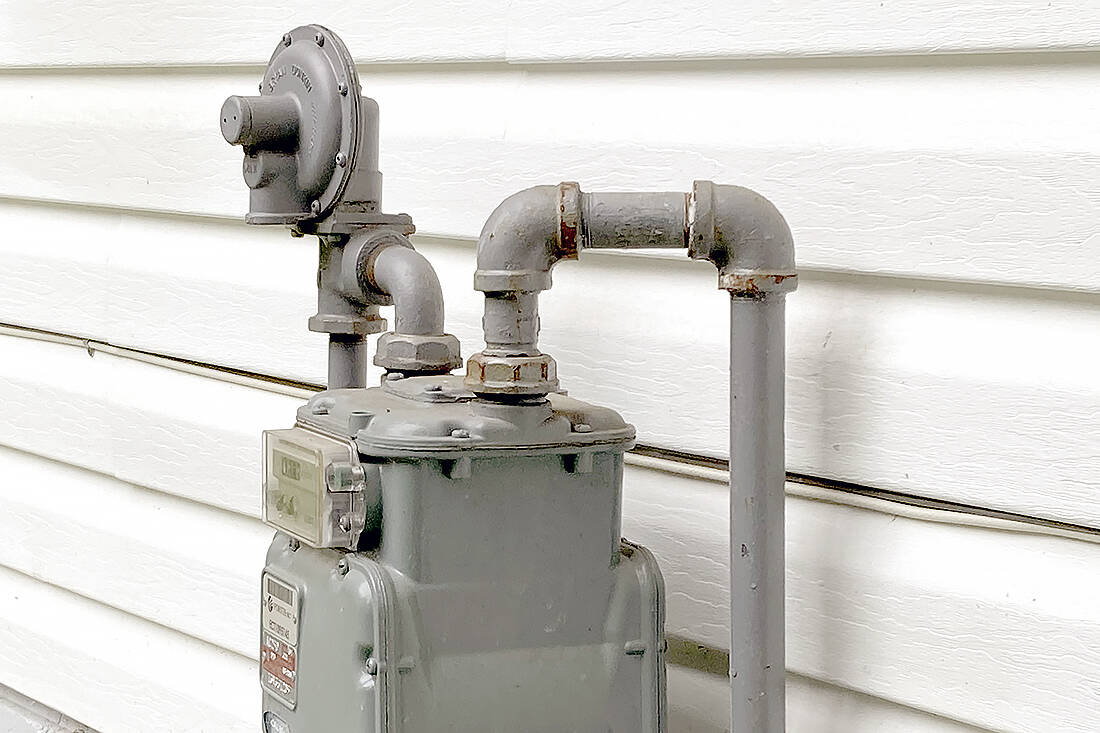BY GREG SAKAKI
Natural gas will not be the primary heat source in new homes built in Nanaimo starting next year.
City council, at a meeting Monday, Aug. 28, voted 5-4 to accelerate adoption of the zero carbon step code to 2024, six years ahead of the province’s timeline of 2030.
Two dozen people made presentations at Monday’s meeting, including environmentalists, home builders, gas fitters, and representatives from Fortis B.C. and B.C. Hydro. The council vote followed a recommendation last month by the city’s governance and priorities committee to implement the highest level of the zero carbon step code as of July 1, 2024.
Ting Pan, the city’s manager of sustainability, said the code doesn’t specify energy sources, and also noted that ancillary heat sources such as gas fireplaces, for example, would still be permitted. But speakers on both sides of the debate indicated that the highest level of the zero carbon step code will effectively eliminate natural gas as an energy source for space and water heating.
That sounded perfectly fine to many of the speakers at the meeting, who pointed to forest fires and record-setting summer temperatures and called on council to take climate action.
Liz McDowell, senior campaigns director at Stand.earth, said gas in buildings causes 12 per cent of greenhouse gas emissions in B.C., but more than 40 per cent of emissions in B.C. cities.
“The best way to address these emissions is to stop operating gas in buildings,” she said.
Some presenters preferred the province’s 2030 timeline. Jason Wolfe, Fortis B.C. director of energy solutions marketing and sales, argued for the city to adopt the lowest level of the zero carbon step code for now, and continue to allow both natural gas systems and electricity as primary energy sources in home-building.
“We need both systems to be working so that customers, residents of Nanaimo, have enough energy…” he said. “We encourage Nanaimo to keep all their options open.”
However, Robyn Wark, B.C. Hydro’s manager of market transformation, said Nanaimo can count on its electricity supply in the coming years.
“Questions about the grid: Is it there? Is it reliable? Absolutely. We have a very high-reliable grid here in Nanaimo and we need to keep that going through the large expansion of electrical infrastructure to meet our electrical needs,” she said.
Kerriann Coady, CEO of the Canadian Home Builders Association Vancouver Island, said from her association’s perspective, concerns about electricity grid capacity should be addressed before adoption of the highest level of the zero carbon step code, and she requested council hold off on accelerating the timeline to 2024.
“That is not enough time…” she said. “The pro to waiting – it’s a measured approach that we ask for. We’ve asked that you work with B.C. Hydro to model data for capacity and ensure capacity. Let’s make the decision from a data-centric place.”
Elisabeth Baudinaud, senior lead for built environment initiatives with the community energy association, noted that for Nanaimo to align adoption of the zero carbon step code with jurisdictions like Victoria and Saanich will provide consistency to builders and developers.
“Those who adopt the zero carbon step code and set and communicate those targets early avoid surprises and foster more collaborative environment with industry and … easier implementation,” she said.
LETTER TO THE EDITOR: City of Nanaimo shouldn’t be eliminating energy options
Coun. Ben Geselbrecht said limiting natural gas in new buildings and retrofitting it out of old buildings is a small part of what needs to be done to have any chance of meeting emissions-reduction targets.
“The more that we delay, the more unrealistic our targets are and the less shot we have of taking responsibility for our fair share of emissions…” he said. “You can make houses as efficient as you want, but if you’re using natural gas to heat them, you’re never going to lower emissions.”
Council voted 5-4 in favour of requiring new homes to meet the highest level of the zero carbon step code starting July 1, 2024.
READ ALSO: City councillors recommend no more natural gas in home-building in Nanaimo

